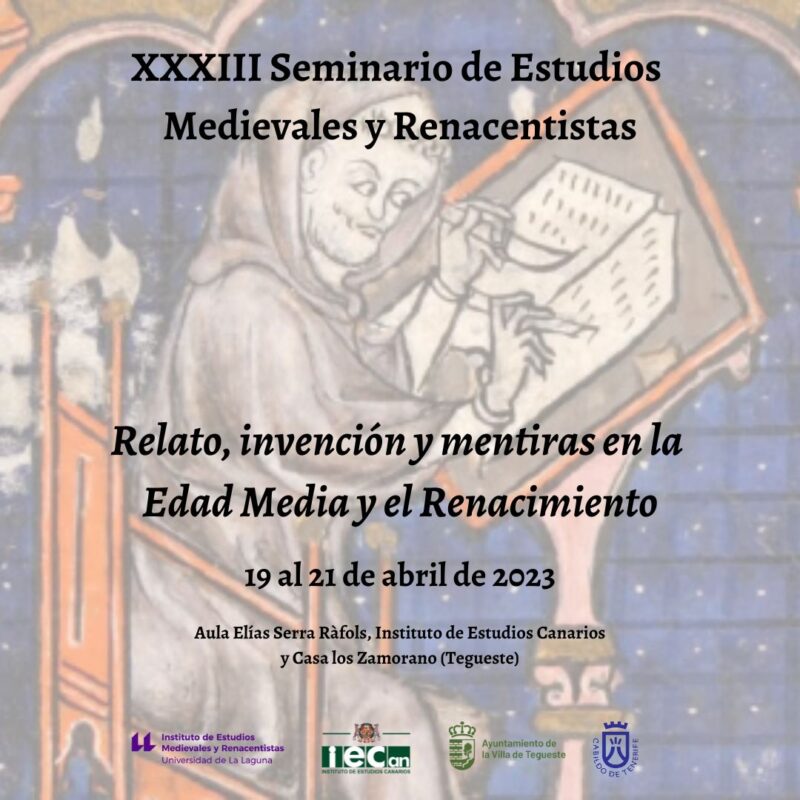
From April 19 to 21, 2021, the Instituto de Estudios Medievales y Renacentistas (IEMyR) of the University of La Laguna organized its thirty-third annual seminar, under the title “Story, invention and lies in the Middle Ages and the Renaissance” (online in this link), with the intention of investigating the role and meaning of concepts such as “truth”, “lie”, “history”, “fable” and “argument” in medieval mentalities, and in what way they articulated the construction of artistic, literary, historical discourses, linguistic and scientific.
Under these premises, José María Anguita gave a conference entitled “Geoffrey of Monmouth and Aimeric Picaud: the Triumph of Medieval Historiographical Fiction”, where he highlighted the striking similarities that unite two contemporary works halfway between fiction and history: the Historia Karoli Magni written under the pseudonym Turpin of Reims (fourth book of the Codex Calixtinus), and the Historia regum Britanniae by Geoffrey of Monmouth. After exposing the hypothesis that both authors were in contact and knew their respective works well, he concluded his intervention with a sample of the type of coincidences that unite them, showing how the prologues of the two works are directly inspired by the prefaces of the Trojan novels or pseudo-histories De excidio Troiae and Ephemeris belli Troaini, written in late antiquity and attributed to the fictional authors Dares Phrygius and Dictys Cretensis.
